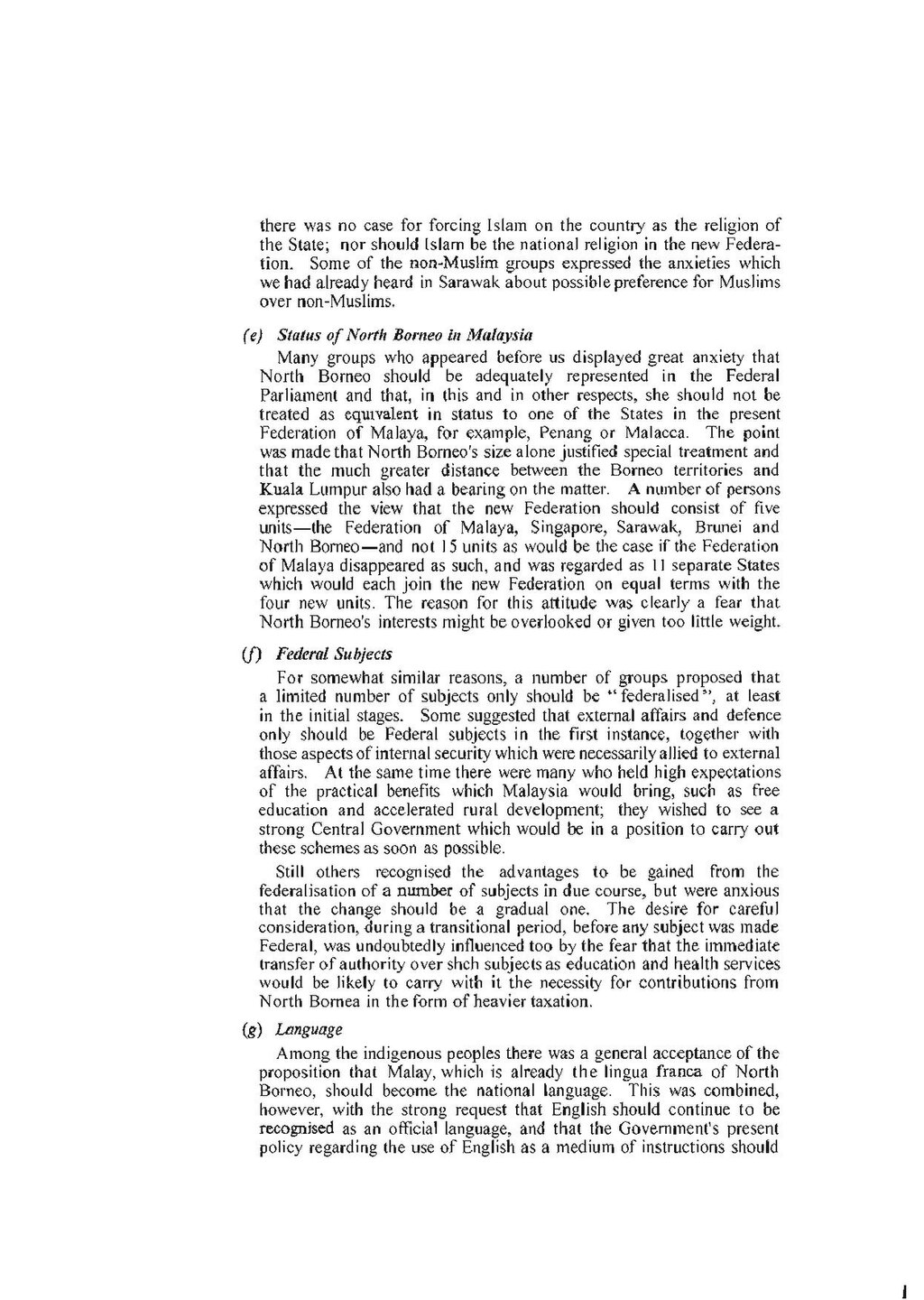there was no case for forcing Islam on the country as the religion of the State; nor should Islam be the national religion in the new Federation. Some of the non-Muslim groups expressed the anxieties which we had already heard in Sarawak about possible preference for Muslims over non-Muslims.
Many groups who appeared before us displayed great anxiety that North Borneo should be adequately represented in the Federal Parliament and that, in this and in other respects, she should not be treated as equivalent in status to one of the States in the present Federation of Malaya, for example, Penang or Malacca. The point was made that North Borneo's size alone justified special treatment and that the much greater distance between the Borneo territories and Kuala Lumpur also had a bearing on the matter. A number of persons expressed the view that the new Federation should consist of five units—the Federation of Malaya, Singapore, Sarawak, Brunei and North Borneo—and not 15 units as would be the case if the Federation of Malaya disappeared as such, and was regarded as 11 separate States which would each join the new Federation on equal terms with the four new units. The reason for this attitude was clearly a fear that North Borneo's interests might be overlooked or given too little weight.
For somewhat similar reasons, a number of groups proposed that a limited number of subjects only should be "federalised", at least in the initial stages. Some suggested that external affairs and defence only should be Federal subjects in the first instance, together with those aspects of internal security which were necessarily allied to external affairs. At the same time there were many who held high expectations of the practical benefits which Malaysia would bring, such as free education and accelerated rural development; they wished to see a strong Central Government which would be in a position to carry out these schemes as soon as possible.
Still others recognised the advantages to be gained from the federalisation of a number of subjects in due course, but were anxious that the change should be a gradual one. The desire for careful consideration, during a transitional period, before any subject was made Federal, was undoubtedly influenced too by the fear that the immediate transfer of authority over shch subjects as education and health services would be likely to carry with it the necessity for contributions from North Bornea in the form of heavier taxation.
Among the indigenous peoples there was a general acceptance of the proposition that Malay, which is already the lingua franca of North Borneo, should become the national language. This was combined, however, with the strong request that English should continue to be recognised as an official language, and that the Government's present policy regarding the use of English as a medium of instructions should
